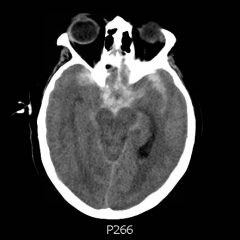Status Epilepticus in the Emergency Department
ABSTRACT
Audience:
This simulation can be used for EM learners of any level including medical students, junior residents and senior residents.
Introduction:
Seizures are the result of abnormal or disorganized cortical electrical activity in the brain. Status epilepticus is a dangerous complication of seizures. In adults and children older than five years old, generalized, convulsive status epilepticus refers to greater than 5 minutes of a continuous seizure OR two or more discrete seizures between which there is incomplete recovery of consciousness As with all emergency situations treatment must occur simultaneously while the physician manages primary assessment and resuscitation and determines the underlying cause.
Objectives:
At the end of this simulation session, the learner will: 1) Demonstrate the management of status epilepticus 2) Justify when airway intervention is needed for status epilepticus 3) Describe risk factors for status epilepticus 4) Prepare a differential diagnosis for the causes in status epilepticus.
Method:
This educational session is a high-fidelity simulation.
Topics:
Status epilepticus, seizure, intubation, anti-epileptic medications, alcohol abuse, toxicology.

